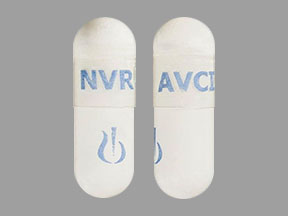Tobramycin Interactions
There are 202 drugs known to interact with tobramycin, along with 4 disease interactions. Of the total drug interactions, 66 are major, 131 are moderate, and 5 are minor.
- View all 202 medications that may interact with tobramycin
- View tobramycin disease interactions (4)
Most frequently checked interactions
View interaction reports for tobramycin and the medicines listed below.
- Advair Diskus (fluticasone / salmeterol)
- Atrovent (ipratropium)
- Augmentin (amoxicillin / clavulanate)
- Bactrim (sulfamethoxazole / trimethoprim)
- Benadryl (diphenhydramine)
- Creon (pancrelipase)
- DuoNeb (albuterol / ipratropium)
- Eliquis (apixaban)
- Flonase (fluticasone nasal)
- Flovent (fluticasone)
- Keppra (levetiracetam)
- Lasix (furosemide)
- MiraLAX (polyethylene glycol 3350)
- Mucinex (guaifenesin)
- Normal Saline Flush (sodium chloride)
- Paracetamol (acetaminophen)
- Prevacid (lansoprazole)
- Probiotic Formula (bifidobacterium infantis / lactobacillus acidophilus)
- Protonix (pantoprazole)
- Pulmozyme (dornase alfa)
- Singulair (montelukast)
- Sodium Chloride, Inhalation (sodium chloride)
- Symbicort (budesonide / formoterol)
- Tylenol (acetaminophen)
- Vitamin B12 (cyanocobalamin)
- Vitamin C (ascorbic acid)
- Vitamin D3 (cholecalciferol)
- Xopenex (levalbuterol)
- Zofran (ondansetron)
- Zyrtec (cetirizine)
Tobramycin disease interactions
There are 4 disease interactions with tobramycin which include:
More about tobramycin
- tobramycin consumer information
- Compare alternatives
- Pricing & coupons
- Side effects
- Dosage information
- During pregnancy
- Drug class: aminoglycosides
- Breastfeeding
Related treatment guides
Drug Interaction Classification
| Highly clinically significant. Avoid combinations; the risk of the interaction outweighs the benefit. | |
| Moderately clinically significant. Usually avoid combinations; use it only under special circumstances. | |
| Minimally clinically significant. Minimize risk; assess risk and consider an alternative drug, take steps to circumvent the interaction risk and/or institute a monitoring plan. | |
| No interaction information available. |
Further information
Always consult your healthcare provider to ensure the information displayed on this page applies to your personal circumstances.


